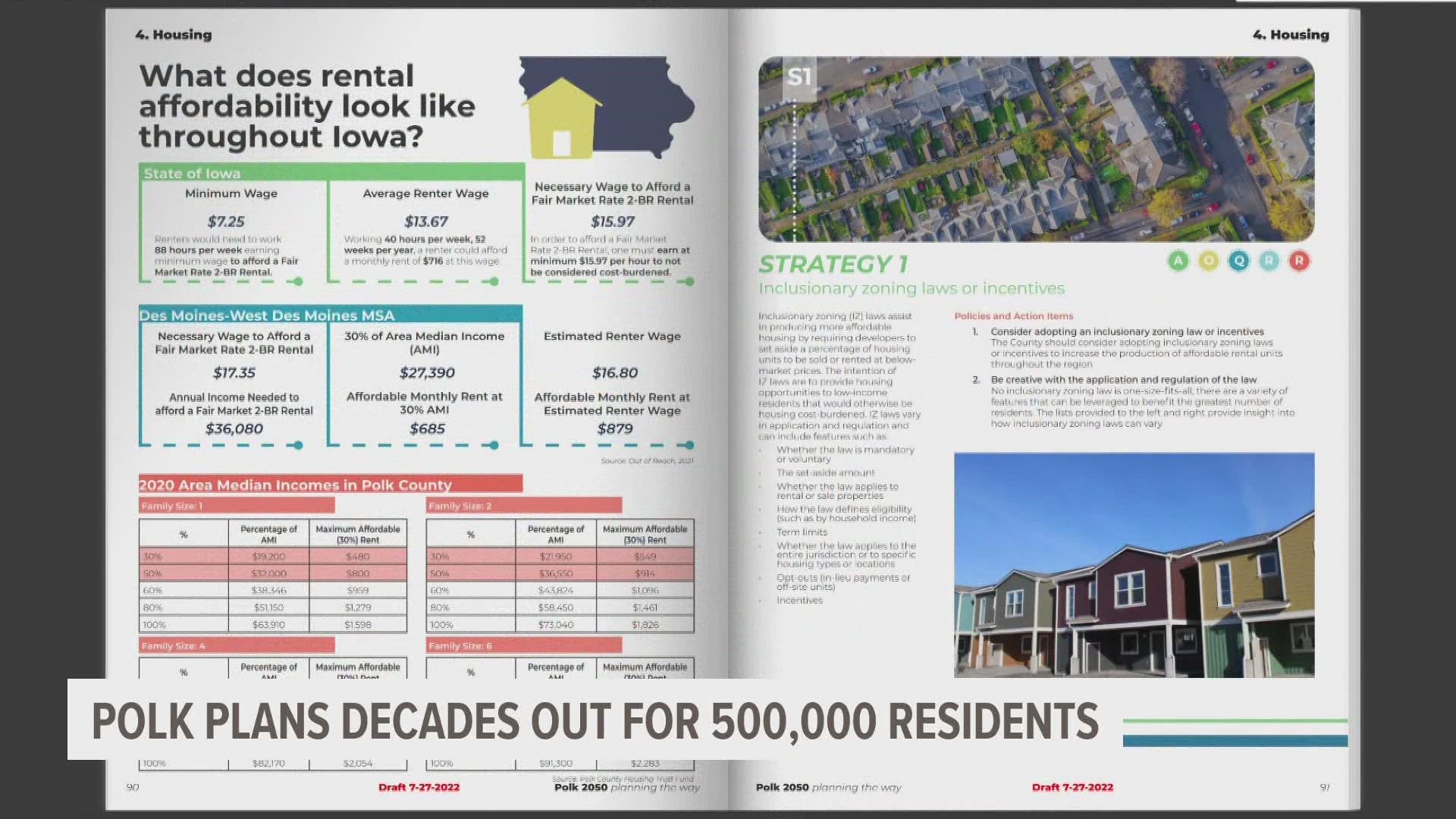DES MOINES, Iowa — The Polk County Board of Supervisors passed the 2050 comprehensive plan Aug. 2 — something that's been in the works for years.
So what's in it, and what does it mean for around 500,000 Polk County residents?
The plan is "future-oriented with horizon years of between twenty or thirty years" and intended to pinpoint what's working and what isn't county-wide, according to the 2050 website.
The 377-page plan lays the groundwork for what to focus on in the coming decades, including:
- Housing
- Land use
- Natural resources
- Agriculture
- Economic Development
- Corridors/Villages
- Infrastructure
- Mobility
During the public input stage of putting the plan together this past May, housing was the top theme.
According to the plan, 9% of the county's land is currently used for housing compared to a whopping 73% percent for agriculture. Parks and recreation rounds out the third spot, claiming 7% of the land.
The housing demand in Polk County is increasing. The plan estimates that from now until 2050, the county will need another 1,700 housing units in the unincorporated part of Polk — meaning outside city limits.
Of those homes, 15% are recommended as rentals. However, renting in the county is easier said than done. A renter making minimum wage at $7.25 an hour would need to work 88 hours a week to afford a two-bedroom unit as calculated in the plan.
In order to prevent renting from becoming a burden on the typical monthly paycheck, residents would need to make nearly $16 an hour, which is higher than the average renter's hourly wage of $13.67.
The comprehensive plan calls for inclusionary zoning laws to help with this. Essentially, the county wants to implement more laws that provide affordable housing using tools such as grants.
Other strategies laid out include building along transit corridors, using vacant land and dispersing affordable housing to all areas of the county rather than concentrating them in one location.
However, the plan recognizes that urbanization and residential development do pose a threat against agriculture in Polk County. Other factors that could hurt agriculture in coming decades are climate change, a scarcity of water and land and invasive species and diseases.
To combat these threats, the 2050 plan lays out a handful of conservation programs to tackle best practices for farming and discouraging suburban sprawl, among many others.
All five Polk County Supervisors voted in agreement to the 2050 Comprehensive Plan. The last plan of its kind for Polk County was released in 2006.
If you have comments or questions about the plan, you can email Polk County Planning & Development Manager Bret Vandelune at Bret.Vandelune@polkcountyiowa.gov or submit comments via their Interactive Engagement Website.

